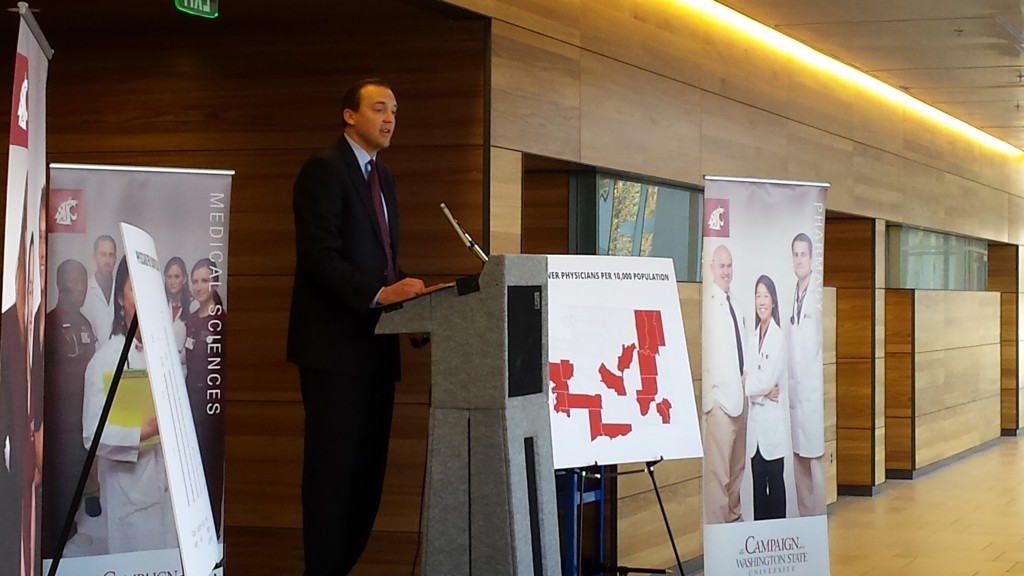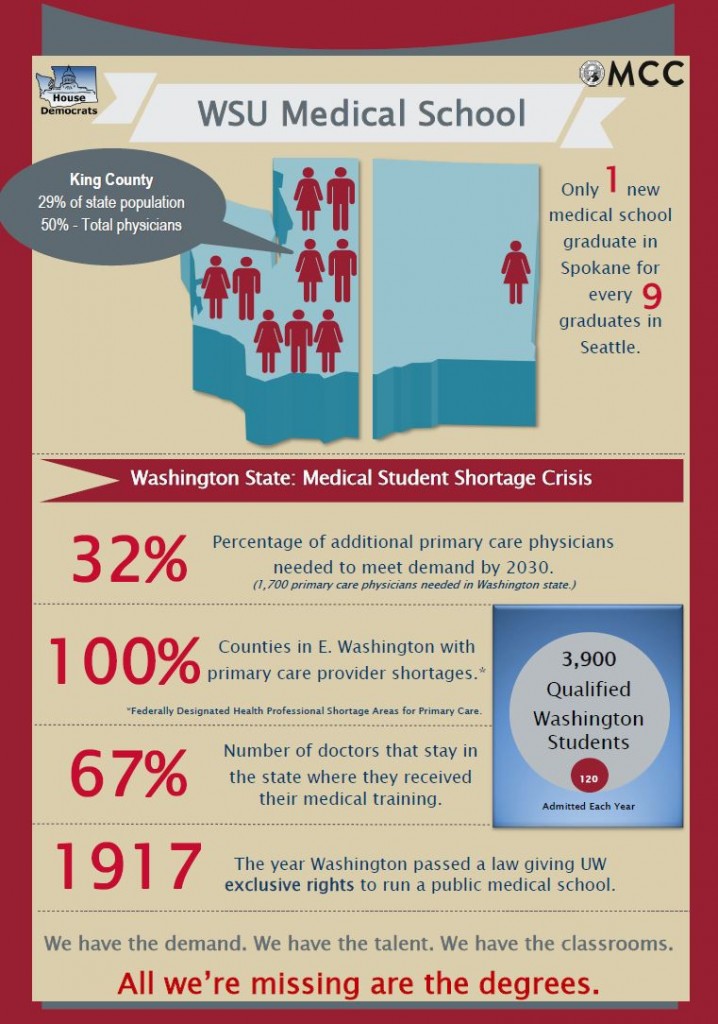 Spokane lawmakers Michael Baumgartner and Marcus Riccelli announced their bipartisan support Tuesday for a new Washington State University medical school in Spokane, and said they will introduce legislation next year to make it a reality.
Spokane lawmakers Michael Baumgartner and Marcus Riccelli announced their bipartisan support Tuesday for a new Washington State University medical school in Spokane, and said they will introduce legislation next year to make it a reality.
Sen. Baumgartner, R-Spokane, and Rep. Riccelli, D-Spokane, said the WSU proposal offers an innovative way to extend medical education to underserved areas of the state and alleviate a growing shortage of doctors in Eastern and rural Western Washington.
“I’m excited about WSU’s plan to establish an independent medical school here in Spokane,” Baumgartner said. “This will have a huge impact on our economy, and I look forward to working with Rep. Riccelli to make it a reality in the Legislature.”
A 1917 law restricts medical education to the University of Washington and enrollment from Washington students is limited to an incoming class of 120 students annually. That means many qualified Washington students are forced to leave the state to continue their medical education elsewhere. During the 2012-13 school year, some 220 qualified Washington students went to out-of-state medical schools, according to statistics kept by the Association of American Medical Colleges.
“Nearly 67 percent of doctors stay in the state where they received their undergraduate and graduate medical training,” Riccelli said. “Having a top notch medical school in Spokane will help us reduce the doctor shortage in Eastern Washington, particularly in smaller communities where family physicians are needed most.”
Baumgartner serves as vice chair of the Senate Ways & Means Committee, and Riccelli is vice chair of the House Health Care Committee. Both are influential voices on higher education issues. Riccelli sponsored successful legislation to establish student advisory councils, and Baumgartner was the architect of the first college tuition freeze in nearly 30 years
Washington State University eventually hopes to graduate 120 medical students per year in Spokane, and is requesting $2.5 million in funding from the Legislature this year to help establish its program.
“The overall operating budget will be nearly $37 billion. Finding $2.5 million for a project as important as this will not be a significant challenge,” Baumgartner said. “I also doubt we’ll find too many legislators defending the antiquated 1917 law. I’m not sure doctors back then were even required to wash their hands.”

